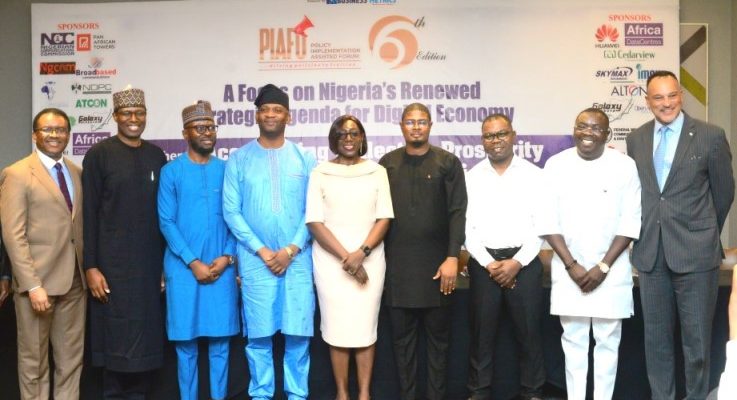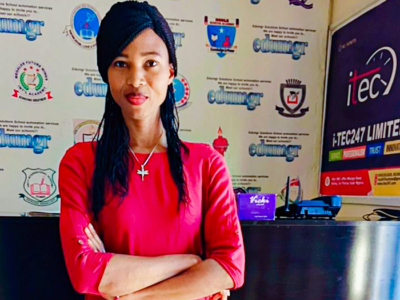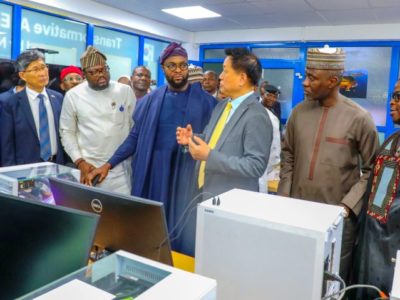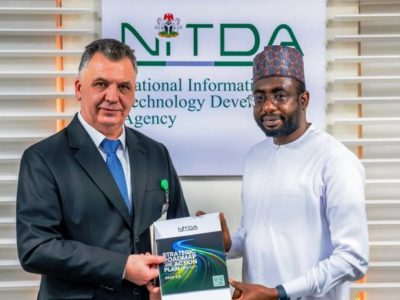By Osasómé C.O
Stakeholders in the telecommunications industry have expressed concerns over the Federal Government’s ambitious plan to deploy 90,000 kilometers of fiber optic cables across Nigeria. They highlighted several obstacles, particularly from state governments, that could impede the project’s success.
RELATED: Edo State partners with Geniserve to connect LGAs with fibre optic cables
During the Sixth Edition of the Policy Implementation Assisted Forum (PIAFO) in Lagos, experts emphasized that without addressing the issues of Right of Way (RoW) charges, multiple taxation, and levies—primarily controlled by state governments—the project, which is to be executed through a Special Purpose Vehicle (SPV), may not achieve its intended goals. The forum focused on Nigeria’s renewed strategic agenda for the digital economy.
Addressing the Obstacles
Presenting a paper titled “Harmonizing Nigeria’s Fibre Deployment Strategies for Effective Implementation,” Executive Director of Broadbased Communications, Mr. Chidi Ibisi, stated that while the SPV initiative is promising, the government must tackle existing challenges. “The issues of high RoW costs, destruction of fiber by road construction companies, and vandalism must be addressed for the SPV initiative to succeed,” he said.
Group Chief Operating Officer of WTES Projects Limited, Mr. Chidi Ajuzie, highlighted the informal RoW charges by hoodlums as a significant challenge. “In some communities, so-called landowners (omo onile) demand fees, complicating fiber deployment,” he explained.
Role of State Governments
Chairman of the Association of Licensed Telecommunications Operators of Nigeria (ALTON), Engr. Gbenga Adebayo, stressed the need for state governments to support the project. “State governments must stop viewing RoW as a revenue source. They need to align with the digital economy goals and provide a conducive environment for infrastructure development,” he urged.
Engr. Adebayo also noted that while some governors promise free or low-cost RoW, they impose various levies that ultimately increase costs. “Governors must follow through on their promises without adding hidden charges,” he added.
Private Sector Involvement
Dr. Ayotunde Coker, CEO of Open Access Data Centre (OADC), emphasized the importance of private sector execution, even with anticipated World Bank funding of up to $3 billion. “The World Bank should engage the private sector to implement the project effectively,” he said. Dr. Coker also stressed learning from past failures to achieve meaningful broadband penetration.
Call for Collaboration
PIAFO convener, Mr. Omobayo Azeez, underscored the need for collective responsibility among stakeholders to drive Nigeria’s digital economy. He noted that the conference aimed to create a dialogue platform for public and private sector stakeholders to harmonize efforts and accelerate technical efficiency for shared prosperity.
The event, focused on Nigeria’s strategic digital economy agenda, highlighted the necessity for sustainable policy directions and the exploration of new frontiers to “Accelerate Our Collective Prosperity through Technical Efficiency,” the theme of the summit.
Project is crucial to improving digital infrastructure
The Federal Government’s fiber optic project is a crucial step toward improving Nigeria’s digital infrastructure. However, addressing the challenges posed by state governments and ensuring private sector involvement will be essential for its success.
PHOTO:
L—R: Executive Director, Broadbased Communications Limited, Chidi Ibisi; National Chairman, Association of Licensed Telecoms Operators of Nigeria, Engr. Gbenga Adebayo; Chief Operating Officer, WTES Projects Limited, Chidi Ajuzie; Chief Executive Officer, Skymax Integrated Networks Limited, Engr. Chidi Charles Agukwe; Deputy Director, Policy, Competition and Economic Analyses, Nigerian Communications Commission, Mrs. Freda Bruce-Bennett; the Convener of Policy Implementation Assisted Forum (PIAFo), Mr. Omobayo Azeez; Lucky Anumaka, Manager, Managed Services and Operations, Zora Communications Limited; Co-founder/Executive Director, Infratel Africa, Dr. Tola Yusuf; and the Chief Executive Officer, Open Access Data Centre, Dr. Atotunde Coker at the sixth edition of PIAFo on Digital Economy held on Wednesday in Lagos.

































